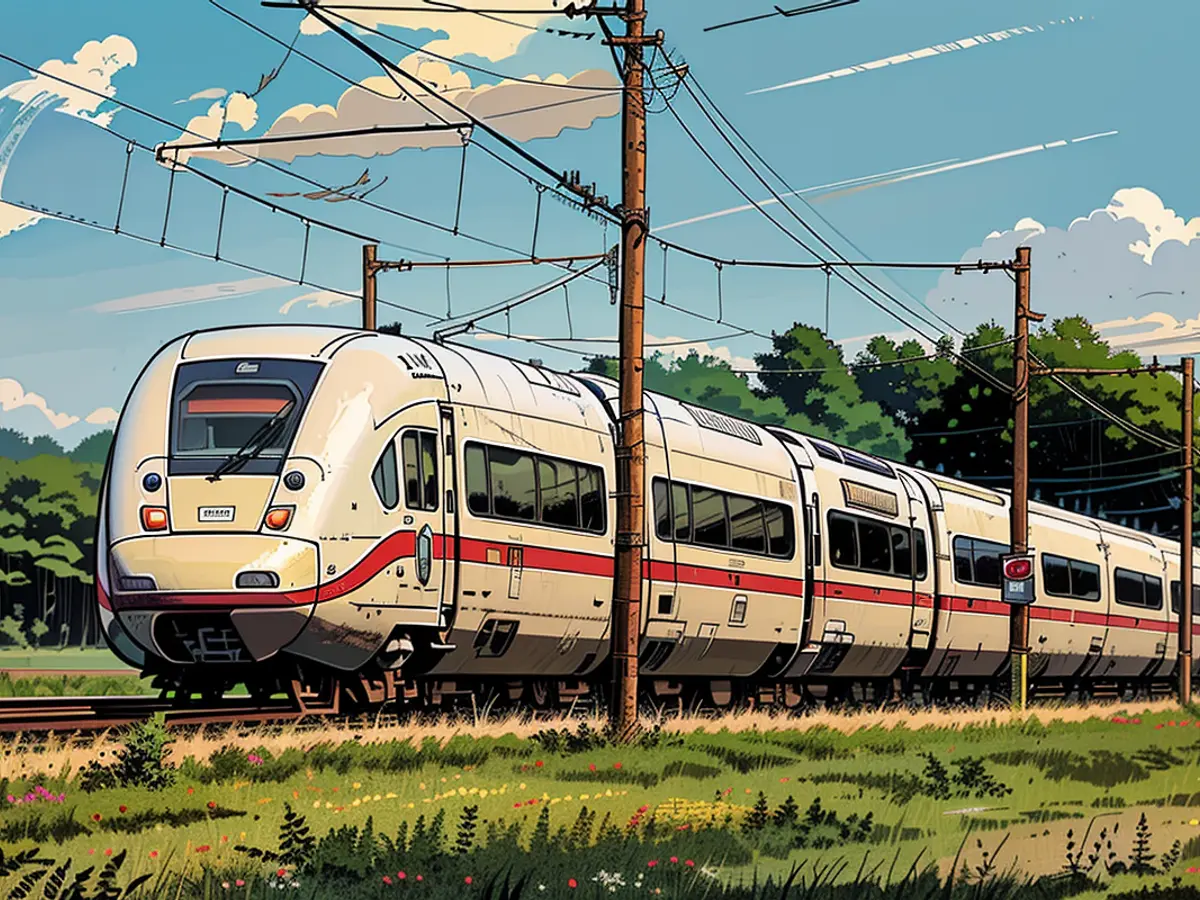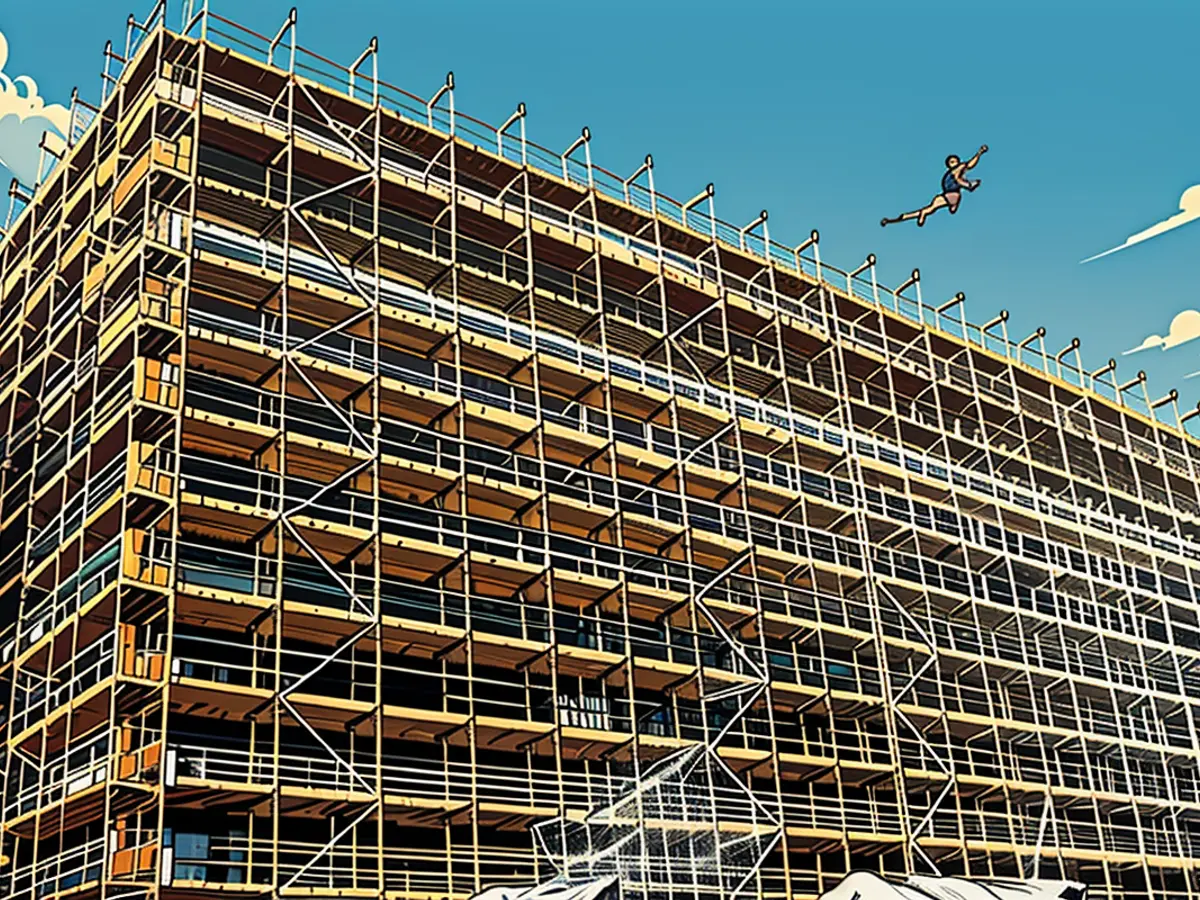Hamburg-Berlin railway will be closed for months
The Hamburg-Berlin Railway Line Connects the Two Largest Cities in Germany. Due to its poor condition, a lengthy renovation is upcoming - the first of two. Upon completion, trains will not run faster, but rather for reliability. Here's what passengers need to know.
How long will the line be closed? The construction works are scheduled to last from this Friday until the timetable change on December 14. This means there will be significant disruptions in long-distance and regional traffic for around four months. "Among other things, more than 74 kilometers of tracks and 100 switches between Wittenberge and Ludwigslust, as well as between Hamburg and Büchen and around Hagenow Land, will be renewed," the railway company announced.
What will be running during the closure? Long-distance trains will be rerouted westwards via Stendal, Salzwedel, Uelzen, and Lüneburg. They will often make stops there too. The journey time will be extended by 45 minutes, with some trains taking a bit more or less. Because the line is partly single-track, only one long-distance train will run per hour instead of the usual two. For commuters between Hamburg and Wittenberge, a replacement bus service will be set up, also serving Ludwigslust. The connections are already integrated into the online timetables and can be accessed via the usual channels.
Are there any further restrictions? Yes. From Friday onwards, construction will also take place between Hamburg and Schwerin - until September 29. During this time, there will be no ICE trains there. There will be a direct connection with replacement buses. Additionally, one Intercity train per day will run via Lübeck.
What about regional traffic? The journey with regional trains from Hamburg Hbf with a change in Schwerin and from there directly to Berlin and back will not be possible until December. Only the much longer route via Bützow is free. The regional train connection Hamburg-Uelzen-Salzwedel-Stendal-Rathenow-Berlin and back is not a real alternative, as the regional traffic will be thinned out due to the increased load of long-distance trains, and there is a bus replacement service between Uelzen and Salzwedel that significantly extends the journey time.
Is this already the comprehensive renovation? No. The railway company refers to the comprehensive modernization of more than 40 heavily used rail corridors in Germany as the comprehensive renovation. The company and the federal government want to gradually make the outdated track network fit again between the important junctions in this way and improve the reliability of rail traffic.
The renovation of the first corridor on the so-called Riedbahn between Frankfurt and Mannheim has been underway for about a month now. Next year, the route important for freight traffic between Emmerich and Oberhausen, as well as the Hamburg-Berlin route again, will be the focus.
From August 2025 to April 2026, there will therefore be another closure between the Hanseatic and the capital cities. Tracks, switches, overhead lines, signaling and safety technology - everything will be renewed during these almost nine months. Afterwards, the line should be free of defects for years and trains should run more reliably there than before.
Will long-distance trains be faster on the route after the two renovation phases? Probably not. The railway company told ntv.de: "Passengers and freight transport companies will benefit from noticeable improvements in quality and punctuality after the completion of the comprehensive renovation. The number of infrastructure-related disruptions will decrease significantly. A reduction in travel time is not currently planned."
Why doesn't the railway company complete the work simultaneously and close the track only once?Because the track is so outdated that some work can no longer wait. "The construction work in 2024 is necessary to ensure that trains can continue to run at full speed and there are fewer infrastructure disruptions," it says in a presentation by Deutsche Bahn. The company has intensively checked whether the construction measures can be bundled with the general overhaul. However, legal deadlines for maintenance also have to be met, making a postponement impossible.
Why is the railway company opting for general overhauls?Deutsche Bahn is as unreliable as it has been for many years. In the first half of 2024, nearly every third long-distance train was late. The company blames this mainly on the dilapidated infrastructure, into which too little has been invested for decades. The federal government now wants to catch up with billions in investment. With every renovated main corridor, the reliability of the entire rail network should gradually improve. This means initial additional burdens for passengers due to construction-related closures. It may take several more years before any noticeable improvement is felt.
Given the upcoming renovations, how does the European Union's role fit into this scenario? The European Union, through its Cooperative Prioritization Process, has been instrumental in identifying and prioritizing the Hamburg-Berlin Railway Line for renovation, recognizing its importance as a critical cross-border transportation route.
During the renewal process, what role does European funding play in ensuring its success? The renovation project is partially funded by the Connecting Europe Facility (CEF), a program under the European Union's budget, which supports trans-European infrastructure projects to enhance connectivity between European member states, including Germany.








